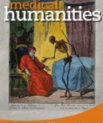Use of patient-controlled psychiatric hospital admissions: Patients' perspective
Article published in Nordic Journal of Psychiatry

Background: By patient-controlled admission (PCA), psychiatric patients with a PCA contract can initiate a brief admission without a health professional gatekeeper. However, research regarding use of PCA is scarce.
Aims: In this Danish multi-centre study, motives for and satisfaction with PCA were explored.
Methods: During a 1-year period, patients from 11 Danish mental health units evaluated PCA using a questionnaire developed for the purpose.
Results: In total, 190 patients evaluated 462 admissions. The majority had concluded a PCA contract to receive early help. PCA was mostly initiated because of mental health conditions, but also because of social and everyday problems. The purpose was mainly to be at peace and prevent symptom increase. Patients from units with a quarantine period felt more ready for discharge than the others. Patients were in general satisfied with PCA (61.7%), but patients who hoped for improved medication or wished to obtain more care were less satisfied.
Conclusions: Patients can use PCA as a means to receive timely help. Motives for patients seeking help are not limited to mental conditions. Expectations that cannot be met within the organizational structure of the PCA programme are associated with less satisfaction. However, regional differences in structures were associated with satisfaction. Patients who had access to shorter PCAs were more satisfied, and a quarantine period may even help patients become more ready for discharge. A brief admission period does not cause dissatisfaction at discharge and can be used in the clinical setting.
Ellegaard, T, Bliksted, V, Lomborg, K, Mehlsen, M. Use of patient-controlled psychiatric hospital admissions: Patients' perspective, Nordic Journal of Psychiatry, 2017,
Read the article here: http://dx.doi.org/10.1080/08039488.2017.1302505
Contact: Associate Professor Vibeke Fuglsang Bliksted, Dept. of Clinical Medicine



